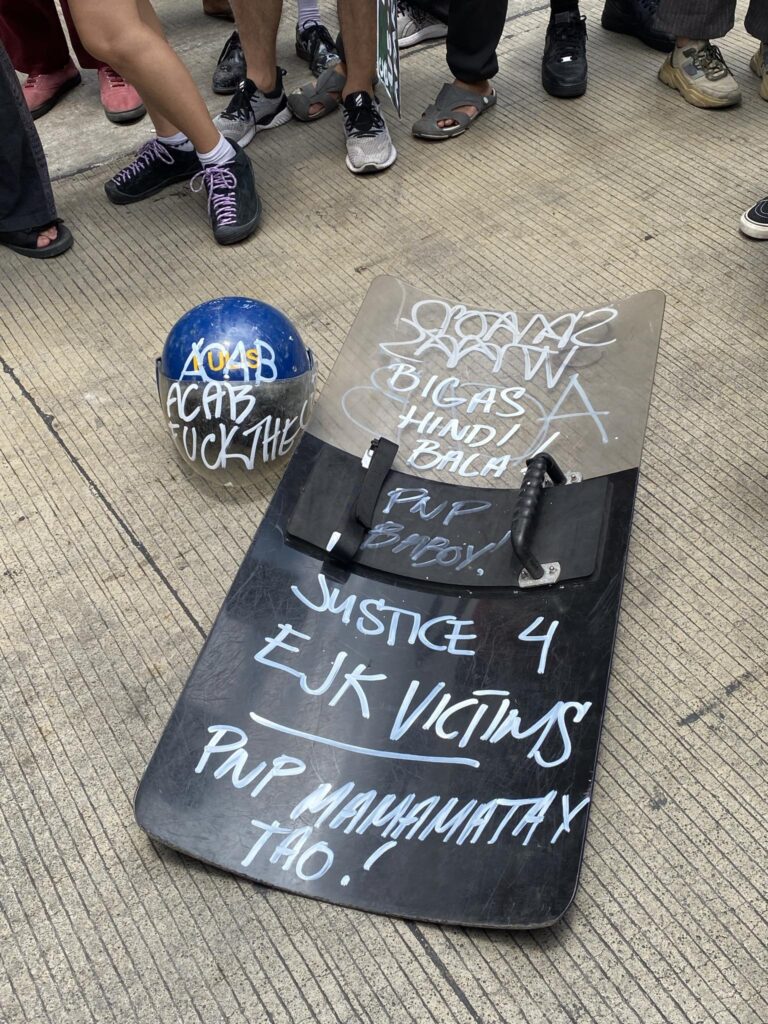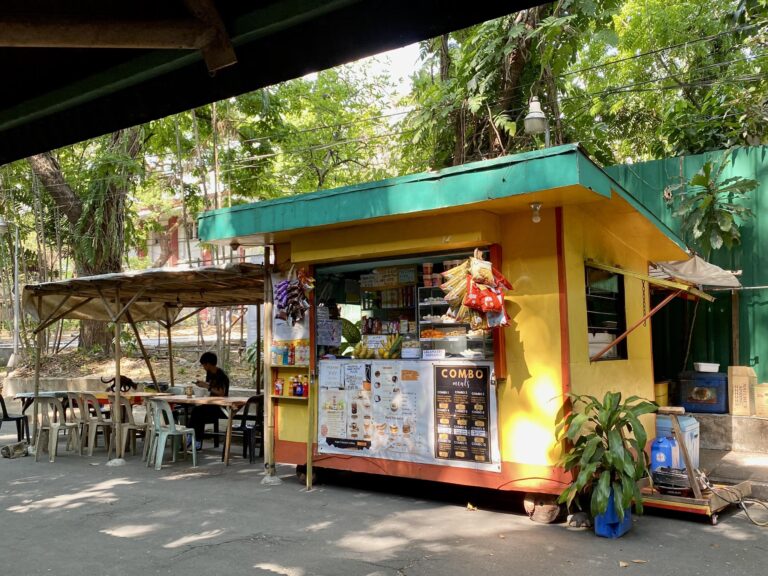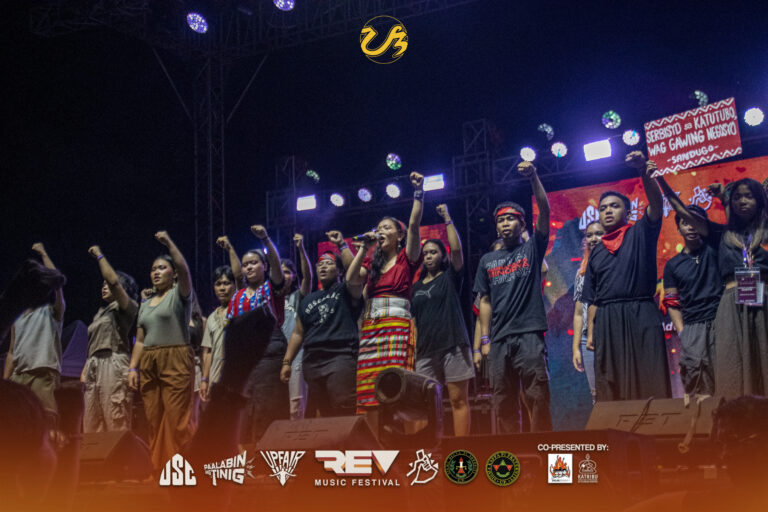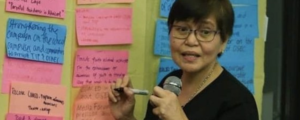
UP Mental Health Month (MHM) and Mondelēz International held its penultimate event for this year’s celebration of mental health month entitled “Gaano Kalayo na ang Narating?: Talakayan sa PH Mental Health Law,” a roundtable discussion on the current progress of R.A. 11036, or otherwise known as the Mental Health Act of 2018, on Saturday, October 30.
The Mental Health Act (MH Law) ensures the right of Filipinos to accessible and affordable mental health services. It mandates the integration of mental health care to basic health services, promotion of mental health awareness in schools and workplaces, and improvement of mental healthcare facilities nationwide.
This landmark law has engendered changes to the country’s mental health situation since its ratification three years ago. Yet, present challenges and other factors continue to hamper the full actualization of the law’s promises.
Coming together from different areas of expertise and influence, the speakers attempted to answer the most pressing questions regarding the status of the country’s MH Law.
Three years with MH Law
The roundtable discussion started with the first question about the mental health situation of the Philippines three years after the law was passed.
Dr. Rodney Boncajes, a psychiatrist and representative from National Center for Mental Health (NCMH), stated that there were changes in directions of the plans and programs for the mental health facilities, but they were disrupted by the pandemic. There is also an equipment shortage in building the facilities because of the sudden increase in the need for mental health services.
“There is a quantity, quality, and intensity gap,” Dr. Rodney said.
The Mariveles Mental Wellness and General Hospital and NCMH in Mandaluyong were cited as the only accessible facilities that could cater to people who need mental health services. He emphasized that every region must have mental health facilities to attend to numerous people who seek mental health advice.
Other panelists added that mental health workers and facilities should improve their services, especially in dealing with SOGIE concerns.
Improving MH Law
The guests and panelists also shared their personal views on MH Law and how it can be improved.
League of Filipino Students (LFS) Chairperson David Perez shared that enacting MH Law provides a concrete plan of action in improving the country’s mental health situation.
However, Perez insisted that MH Law is not enough, and pointed out that mental health problems among basic sectors arise from socioeconomic burdens such as poverty, unemployment, and landlessness.
In fact, cases of suicide and self-intentional harm has doubled in the country as the pandemic took its toll on the livelihood of Filipinos. Millions of laborers remain jobless as the country continues to grapple with the longest lockdown in the world.
The situation is even aggravated by the government’s bungled pandemic response. Financial aid for health workers, students, teachers, and other affected sectors remains elusive.
Meanwhile, the conditions of the farmers grow direr. In 2020, during the height of the pandemic, it was reported that 7 out of 10 farmers remain landless according to Unyon ng mga Manggagawa sa Agrikultura (UMA). The decline in the prices of palay also continues, putting farmers on the brink of poverty amid the health crisis.
With this, Perez called for enacting more laws and organizing mass actions to address the country’s worsening mental health situation once and for all.
“More than the MH Law itself, kailangan pa rin natin ng mass action and key pieces of legislation na magpapatupad ng basic democratic rights ng iba’t ibang sectors in alleviating their mental health problems as a whole,” Perez asserted.
Other panelists emphasized the importance of social context in addressing mental health concerns, and reaffirmed that MH Law can be improved with the inclusion of specific concerns of different sectors.
MH Programs and Initiatives
The invited panelists were also asked based on their knowledge and experience on the possible programs and initiatives that they think are effective and helpful for the mental health of the Filipinos.
Cope UP President Jericho Igdanes underscored that listening to people’s concerns and queries is essential in formulating policies and initiatives to let the people see the importance and value of mental health.
He added that the anti-poor policies in schools should be changed, since it discriminates students that trigger mental health problems.
Meanwhile, Dr. Boncajes also intends to make the mental health service accessible to the public and community. He noted that the system should train psychiatrists and doctors in different municipalities and cities through “task-sharing” to increase the number of mental health workers in the communities. Aside from training, it is also a must to educate the workers on how to attend to patients effectively and improve the Medicine Access Program for Mental Health.
Contributions of MH Law
Moreover, the speakers of the roundtable discussion imparted their views on the changes brought about by MH Law in various domains of society.
Venus Aves, the Punong Babaylan of UP Babaylan, emphasized that the MH Law greatly impacted the culture in schools. Aves pointed out that unlike before, student groups practice mental health check-ins, establish mental health support groups within the organization, and conduct mental health discussions. Likewise, in the academe, more professors and instructors pay more attention to the mental health aspect of student learning.
“Dahil sa MH Law, pumasok na sa lexicon natin ‘yung usapin ng mental health and wellness,” Aves added.
Mental health advocate Riyan Portuguez, or popularly known as “Your Millennial Psychologist,” also expressed the significant effect of MH Law in the field of psychology. Portuguez mentioned the increasing number of individuals taking their area of specialization as they see the importance of mental health.
Portuguez also noted the growing involvement of psychologists in spreading public awareness from national news and films regarding mental health.
In spite of these developments, the government’s actions in improving the country’s mental health situation remain inadequate. In terms of funding, only five percent of the whole health budget was allocated to address the country’s mental health concerns.
The lack of access to mental health services is another key issue. There are only two main mental health centers in the country as of writing. The insufficient number of mental health workers and high-quality facilities also makes mental health services unobtainable to ordinary Filipinos.
On Language and Cultural Differences
The speakers stressed that language must be understandable to the people, and it could be achieved by explaining and clarifying mental health concepts using simpler terms. Portuguez highlighted how language can help make the MH law more inclusive.
Additionally, Dr. Boncajes shared that people should not be judgemental about others’ beliefs and perspectives. He encouraged everyone to be sensitive to cultural differences.
“Hindi mo huhusgahan ang tao. Give respect and consideration sa pananaw ng ibang tao.” Dr. Boncajes added to the question on how we can educate indigenous people about mental health.
What can we do more?
The panelists also shared their thoughts on how individuals and communities can help progress MH law in the country.
Portuguez expressed that every individual can take part in promoting mental health awareness, but reminded everyone to check the accuracy of mental health-related information online before using it to educate other people.
The mental health advocate also said that championing mental health entails practicing self-love, prioritizing prevention over cure, and educating people with misguided views about mental health instead of cancelling them.
Dr. Boncajes believes that every individual has a responsibility in pursuing the goals of MH Law.
“Para makatulong tayo bilang indibidwal, kailangan natin ng 3 elements: awareness, understanding, and compassion,” Dr. Boncajes explained.
Dr. Boncajes also encouraged the event participants to advocate not only for the rights of the people with mental health conditions, but also for the rights of everyone since all people have mental health regardless of their individual qualities.
Meanwhile, Perez asserted that improving mental health is more than an individual struggle.
“There are steps that we can take to change the systemic issues of mental health, and those are constructing reforms in different sectors and being organized and collectivized by everyone’s efforts,” Perez insisted.
To end the event, Atty. Chel Diokno, chairperson of Free Legal Assistance Group (FLAG), delivered his closing remarks. In a video message, Diokno reminded the viewers that there are still a lot of things to be done in continuously improving the country’s mental health situation, such as the inclusion of mental health education in the basic education curriculum.
“Kailangan din mabigyan ng sapat na access ang lahat, lalong-lalo na ang ordinaryong mamamayan sa mental health services. We also need to upgrade facilities and get more and more Filipinos to be mental health professionals,” Diokno added.
Indeed, we may have witnessed significant changes three years after the MH Law passed; still, our collective fight for the improvement of the country’s mental health situation is far from over.
To watch the whole webinar, visit UP Mental Health Month’s Facebook page here:
https://www.facebook.com/upmhmonth/videos/731334367824124
#GaanoKalayoNaAngNarating
Featured image by UP Mental Health Month







